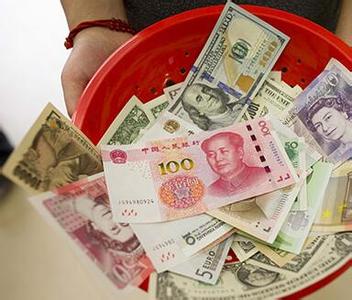
International currencyFundThe organization (IMF) will officially include the RMB as the basket currency of SDR (Special drawing Rights) on October 1st. Paul Mackel, executive director of global research and head of foreign exchange analysis at HSBC, expects the RMB to depreciate in an orderly and slow manner without sharp depreciation pressure after joining the SDR, forecasting that the RMB will be trading at 6.8 per dollar by the end of the year.
At present, the proportion of overseas investors investing in the mainland bond market is only 2-3 per cent, far lower than the level of other countries, and Mr Mack expects the Chinese bond market to be included in the international index in the next one to two years, when the proportion of foreign investment could rise to 10 per cent.
He said that institutions such as the IMF and the Bank for International Settlements (BIS) will increase their holdings of RMB assets due to the need to track SDR, but joining the SDR does not require other IMF members to increase their RMB holdings, so it is difficult to see a significant impact in the short term.
The RMB currently accounts for about 1% of the world's foreign exchange reserve assets, and Meike expectsAfter joining the SDR, IMF and BIS will increase their holdings of RMB assets by about US $5 billion, while central banks will gradually increase their holdings of RMB assets as a result of increased recognition of the renminbi. It is expected that the proportion of RMB in global foreign exchange reserves will catch up with sterling and yen in 10 years' time.
Meke also pointed out that after the RMB joins the SDR, China will continue to promote capital opening up and make the RMB an international investment currency: for example, opening up the mainland interbank bond market will make it easier for overseas investors to gradually increase their onshore investment; at the same time, it will also expand the ways for onshore investors to invest overseas.
Safe said at a news conference on foreign exchange management policy on Thursday that the two-way fluctuation trend of cross-border capital flows will be more obvious after the RMB joins the SDR, but the scale will not be significantly magnified. Considering various factors, cross-border capital flows have the conditions to continue to be within a reasonable and balanced range of overall stability.
Safe said that before entering the basket, both the people's Bank of China and safe issued a series of market opening policies to facilitate the adjustment of asset allocation by foreign institutions. RMB's entry into SDR will attract foreign institutions such as central banks, reserve managers and private sectors to increase their holdings of RMB assets. The continuous opening of China's capital market will also promote capital inflows, but this is a long-term and gradual process. At the same time, RMB's accession to the SDR will enhance the internationalization and convertibility of RMB, enhance the international status of RMB, help to support Chinese enterprises to "go global", and the demand for China's foreign investment portfolio will also increase.
China International Capital Corporation said on Thursday that the RMB exchange rate is expected to remain roughly stable before and after entering the basket.
